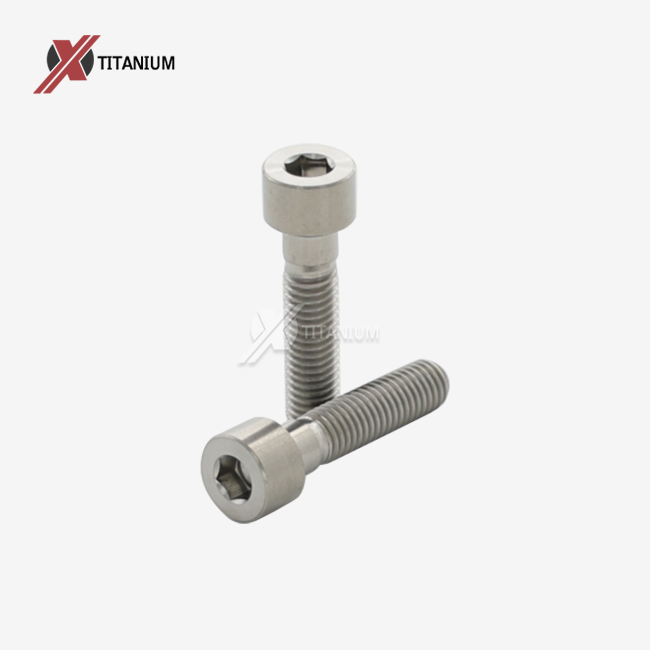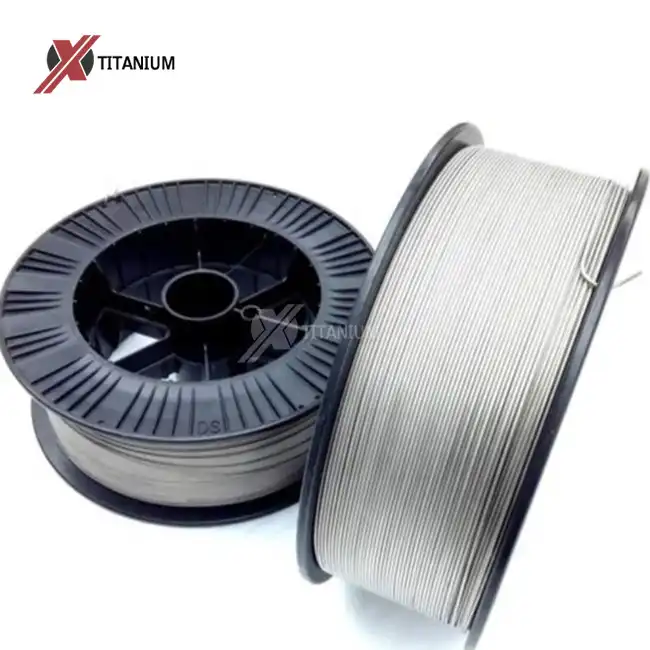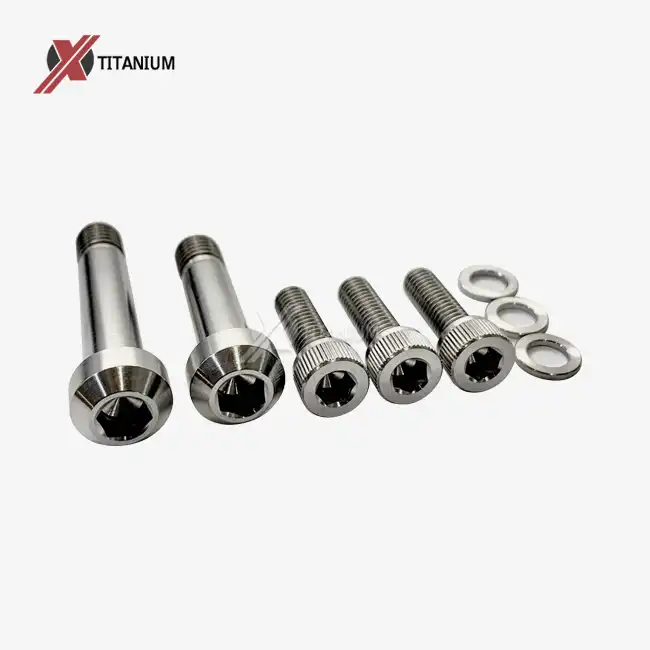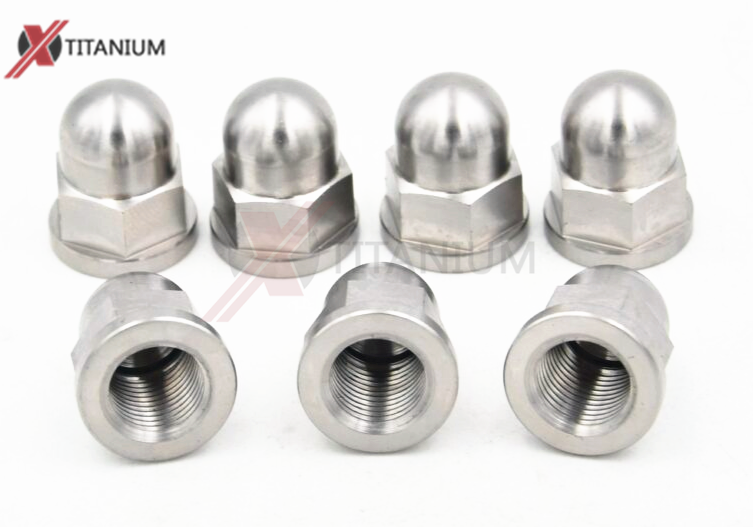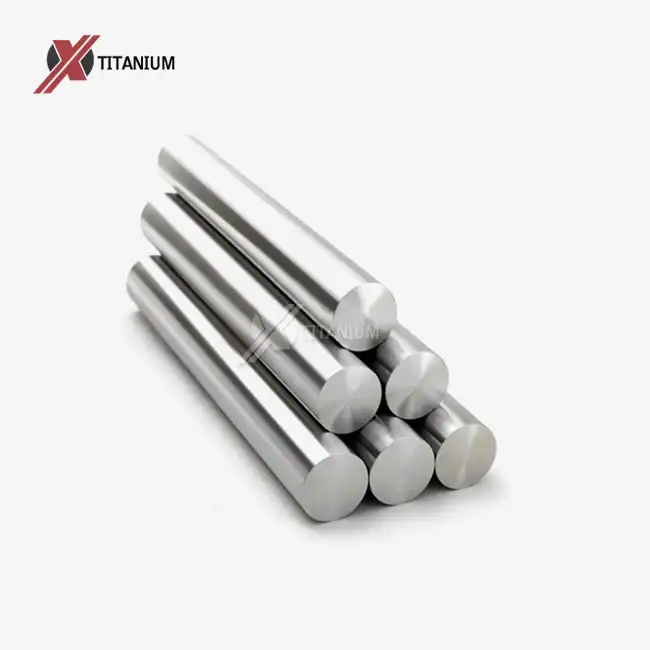The Unique Properties of Grade 5 Titanium Alloy
Grade 5 titanium, also known as Ti-6Al-4V, is a workhorse in the world of high-performance materials. This alloy's composition of 6% aluminum and 4% vanadium, combined with titanium, creates a material that boasts an impressive array of characteristics. The resulting titanium socket head screws manufactured from this alloy inherit these remarkable properties, making them highly sought after in various industrial applications.
Exceptional Strength-to-Weight Ratio
One of the most striking features of Grade 5 titanium socket head screws is their incredible strength-to-weight ratio. Despite being significantly lighter than steel, these fasteners can withstand immense loads and stresses. This property is particularly valuable in aerospace and automotive industries, where every gram counts. By utilizing these lightweight yet robust screws, engineers can design structures that are both strong and fuel-efficient, leading to improved performance and reduced operational costs.
Superior Corrosion Resistance
Titanium's natural ability to form a protective oxide layer makes Grade 5 titanium socket head screws highly resistant to corrosion. This characteristic is amplified in the Ti-6Al-4V alloy, providing excellent protection against saltwater, acids, and alkalis. In marine environments or chemical processing plants, where corrosion is a constant threat, these screws maintain their integrity for extended periods, reducing maintenance requirements and enhancing overall system reliability.
High Temperature Performance
Grade 5 titanium socket head screws exhibit remarkable stability at elevated temperatures. They maintain their mechanical properties up to 400°C (752°F), making them ideal for use in high-temperature applications such as aircraft engines or industrial furnaces. This thermal stability ensures that the fasteners remain secure and functional even under extreme conditions, preventing potential failures that could occur with less resilient materials.
Applications Across Industries
The unique combination of properties offered by Grade 5 titanium socket head screws has led to their widespread adoption across various sectors. These versatile fasteners have found their place in some of the most demanding and innovative industries, where performance and reliability are paramount.
Aerospace and Aviation
In the aerospace industry, where weight reduction is crucial for fuel efficiency and payload capacity, titanium socket head screws are invaluable. They are used extensively in aircraft structures, engine components, and satellite systems. The screws' ability to withstand the extreme temperatures and pressures encountered during flight, coupled with their resistance to fatigue, makes them essential in ensuring the safety and longevity of aircraft components.
Medical and Biomedical Engineering
The biocompatibility of Grade 5 titanium has made it a staple in the medical field. Titanium socket head screws are widely used in orthopedic implants, dental prosthetics, and surgical instruments. Their non-toxic nature and ability to osseointegrate with bone tissue make them ideal for long-term implantation. Moreover, their resistance to bodily fluids and sterilization processes ensures they maintain their integrity throughout their service life.
Marine and Offshore Applications
In marine environments, where corrosion is a constant threat, Grade 5 titanium socket head screws prove their worth. They are used in shipbuilding, offshore oil rigs, and underwater research equipment. Their ability to resist saltwater corrosion and marine growth ensures that structures and equipment remain secure and functional, even in the harshest oceanic conditions. This resilience translates to reduced maintenance costs and improved safety for marine operations.
Manufacturing and Quality Considerations
The production of high-quality Grade 5 titanium socket head screws requires specialized manufacturing processes and rigorous quality control measures. These considerations are crucial in ensuring that the fasteners meet the exacting standards required for their diverse applications.
Precision Machining Techniques
Manufacturing titanium socket head screws demands advanced CNC machining techniques. The material's high strength and low thermal conductivity can make it challenging to work with, requiring specialized tooling and cutting strategies. Precision is paramount, as these screws often need to meet tight tolerances for their intended applications. Manufacturers must invest in state-of-the-art equipment and develop expertise in titanium machining to produce screws that consistently meet or exceed industry standards.
Surface Treatments and Finishes
While Grade 5 titanium inherently possesses excellent corrosion resistance, various surface treatments can further enhance its properties. Anodizing is a common process used to create a harder, more wear-resistant surface on titanium socket head screws. This treatment can also be used to add color coding for easy identification. Other treatments, such as nitriding, can improve the surface hardness and wear resistance, extending the lifespan of the fasteners in high-wear applications.
Quality Control and Certification
Given the critical nature of many applications for Grade 5 titanium socket head screws, stringent quality control measures are essential. Manufacturers must adhere to industry standards such as ASTM F136 for medical implants or aerospace specifications. Each batch of screws typically undergoes rigorous testing for mechanical properties, dimensional accuracy, and material composition. Certifications and documentation are crucial, providing traceability and assurance to end-users that the fasteners meet the required specifications for their intended use.
Conclusion
Grade 5 titanium socket head screws have rightfully earned their place as the industry choice for high-performance fastening solutions. Their unique combination of strength, lightweightness, and corrosion resistance makes them indispensable in applications ranging from aerospace to medical implants. As industries continue to push the boundaries of material performance, these titanium fasteners will undoubtedly play a crucial role in enabling new technological advancements and engineering feats.
For those seeking to leverage the benefits of Grade 5 titanium socket head screws in their projects or products, it's essential to partner with experienced manufacturers who understand the intricacies of working with this exceptional material. Baoji Chuanglian New Metal Material Co., Ltd., with its decade-long expertise in titanium product manufacturing and research, stands ready to meet your titanium fastener needs. For more information or to discuss your specific requirements, please contact us at info@cltifastener.com or djy6580@aliyun.com.
